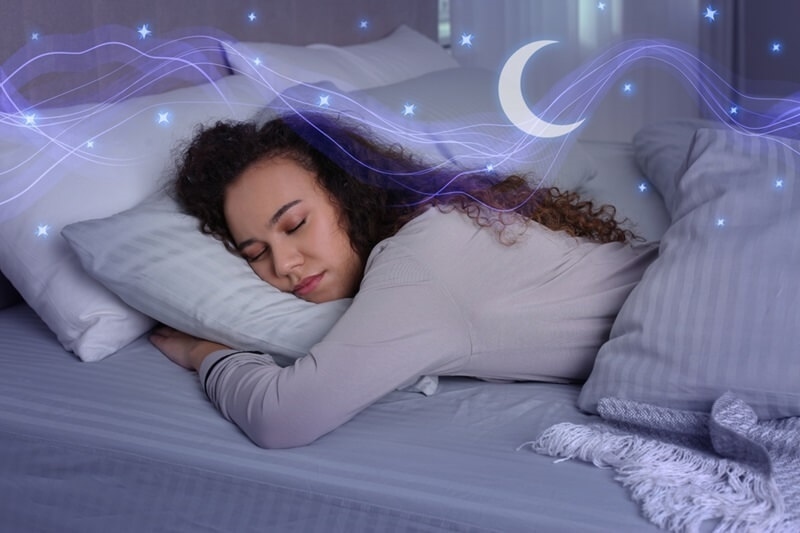
Tossing and turning at night? Struggling to get the rest that your mind and body desire? You're not the only one. Sleep problems plague millions of people worldwide, and while sleep medications help you get a quick fix of sleep, they also carry side effects, risk dependency, and wear off over time. The bright spot? You can learn to sleep better naturally, without medication, by making small, simple changes that can help improve the quality of your sleep over time.
From setting healthy habits at bedtime to modifying your sleep environment, these are generally safe and sustainable changes to make. This guide will help you make realistic adjustments to fall asleep more naturally and build a relaxing evening routine, with practical tips and steps on sleeping better naturally, without using pills or prescription interventions.
Sleep medications often provide short-term benefits but may mask the underlying issue rather than resolve it. Tolerance to sleep medications develops over time, as in temporal dependence. Continuous use of sleep medications has its drawbacks. Inevitably, the user recognizes these disadvantages. Sleep medications often can result in rebound insomnia and make a person dependent on them to fall asleep.
Natural remedies offer a way to retrain the internal clock in your body, support a consistent sleep pattern, and provide quality sleep. By learning to fall asleep better at night without medications, you will help your body provide restful sleep in a healthier, sustainable way.

Before getting into the strategies, it is necessary to understand the elements of restful sleep:
Naturally developing these is the basis for long-term success.
Your body is naturally inclined towards routine. Try going to bed and waking up at the same time every day of the week, even on weekends, to help regulate your internal clock.
Sleep Schedule Suggestions:
This simple change is one of the most powerful changes in how to sleep better naturally.
Your brain needs signals to start winding down. Developing a calming pre-sleep ritual trains your body to shift into rest mode.
Bedtime Routine Tips for Adults:
A consistent, relaxing routine improves how fast you fall asleep and how restful your sleep feels.
Your bedroom plays a significant role in your sleep quality. Creating a quiet, dark, and cool space helps cue your body for rest.
Improve Sleep Hygiene with These Changes:
Clean, uncluttered surroundings also help reduce mental stress at bedtime.
Blue light from phones, tablets, and TVs suppresses melatonin, the hormone that makes you feel sleepy.
What to Do Instead:
Limiting screen use is recommended for anyone learning to fall asleep faster at night.
Your evening habits directly impact your ability to fall—and stay—asleep.
Evening Food & Drink Tips:
These natural sleep aids and habits can support better sleep without needing supplements or drugs.
Daily exercise helps regulate sleep patterns, reduce stress, and boost well-being.
Exercise Tips:
Regular movement supports your body’s need for recovery and makes falling asleep easier.
Worry and racing thoughts are major sleep disruptors. Managing stress during the day—especially before bed—can significantly improve sleep quality.
Stress-Reducing Activities:
Mental relaxation is just as important as physical relaxation when exploring how to sleep better naturally.
While short naps can be refreshing, long or late-day naps can interfere with your nighttime sleep.
Nap Smart:
Napping should complement your sleep schedule, not compete with it.
Some people benefit from natural, non-habit-forming supplements, especially during periods of high stress or disrupted sleep.
Common Natural Sleep Aids:
Always consult with a healthcare provider before using supplements, and use them as a short-term aid, not a crutch.
Tracking your sleep helps you see what’s working—and what’s not.
What to Record:
Patterns will emerge, helping you personalize your approach to sleep improvement.
Natural light exposure early in the day helps reset your circadian rhythm and boosts serotonin, which later converts to melatonin.
How to Do It:
This strategy supports your body’s natural cues for alertness and restfulness.
Ironically, stressing about sleep can keep you awake longer. Let go of the pressure to sleep perfectly.
Try This Instead:
The more you trust your body to do what it’s built to do, the easier sleep becomes.
Occasional night waking is normal, but what you do next matters.
If you’re awake for more than 20–30 minutes, get out of bed and relax in low light until you feel sleepy again.
Medication is not necessary for relaxing, refreshing sleep. With small purposeful changes to your routine, habits, and environment, you can take back the sleep that stress, screen time, or life got in the way of.
This resource on how to sleep better without medication: practical tips gives you a pathway to healthy, side-effect-free rest. Whether you intend to start with a single change, such as limiting caffeine, or take the leap into an overhaul of your sleep hygiene, every change gets you closer to peaceful evenings and energized mornings.
Remember that you are creating better sleep, health, and quality of life.
This content was created by AI